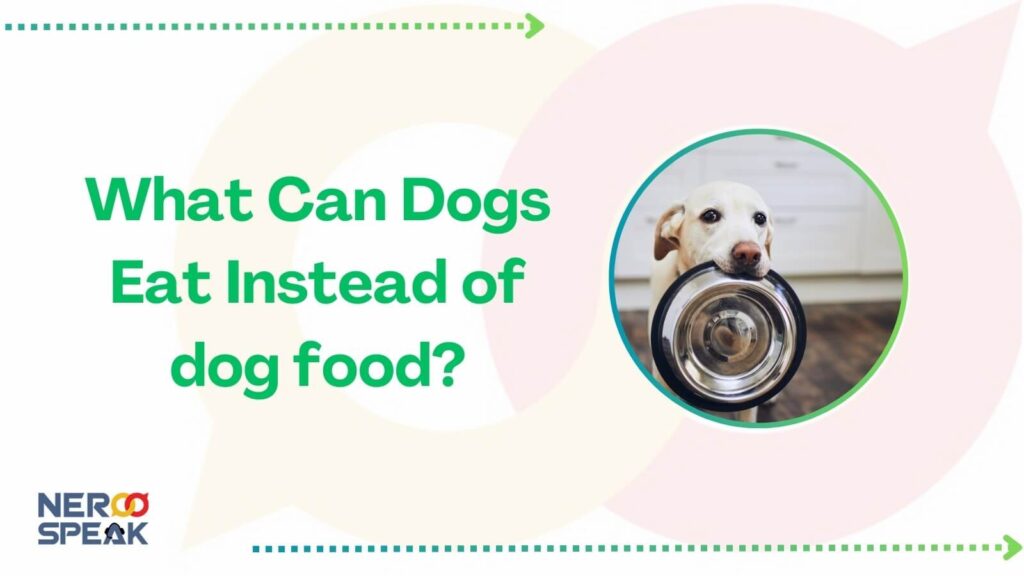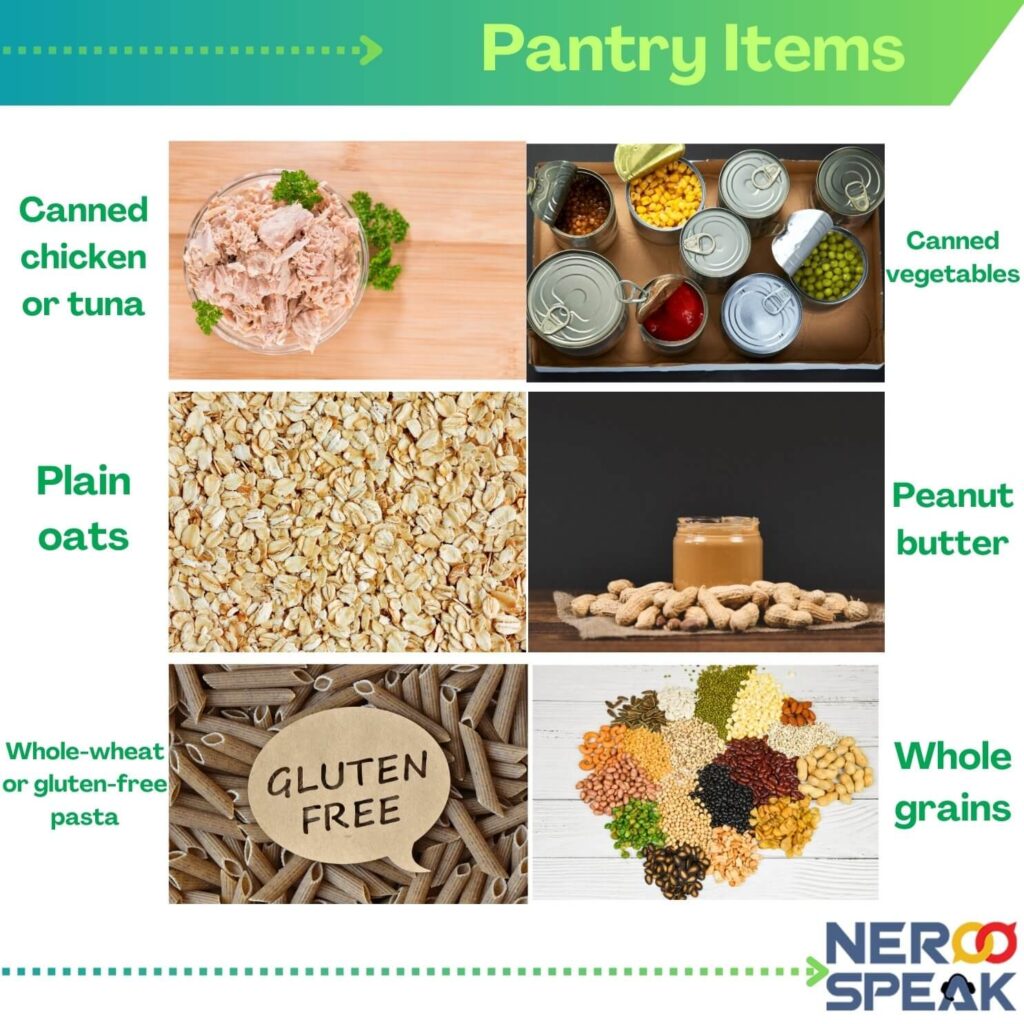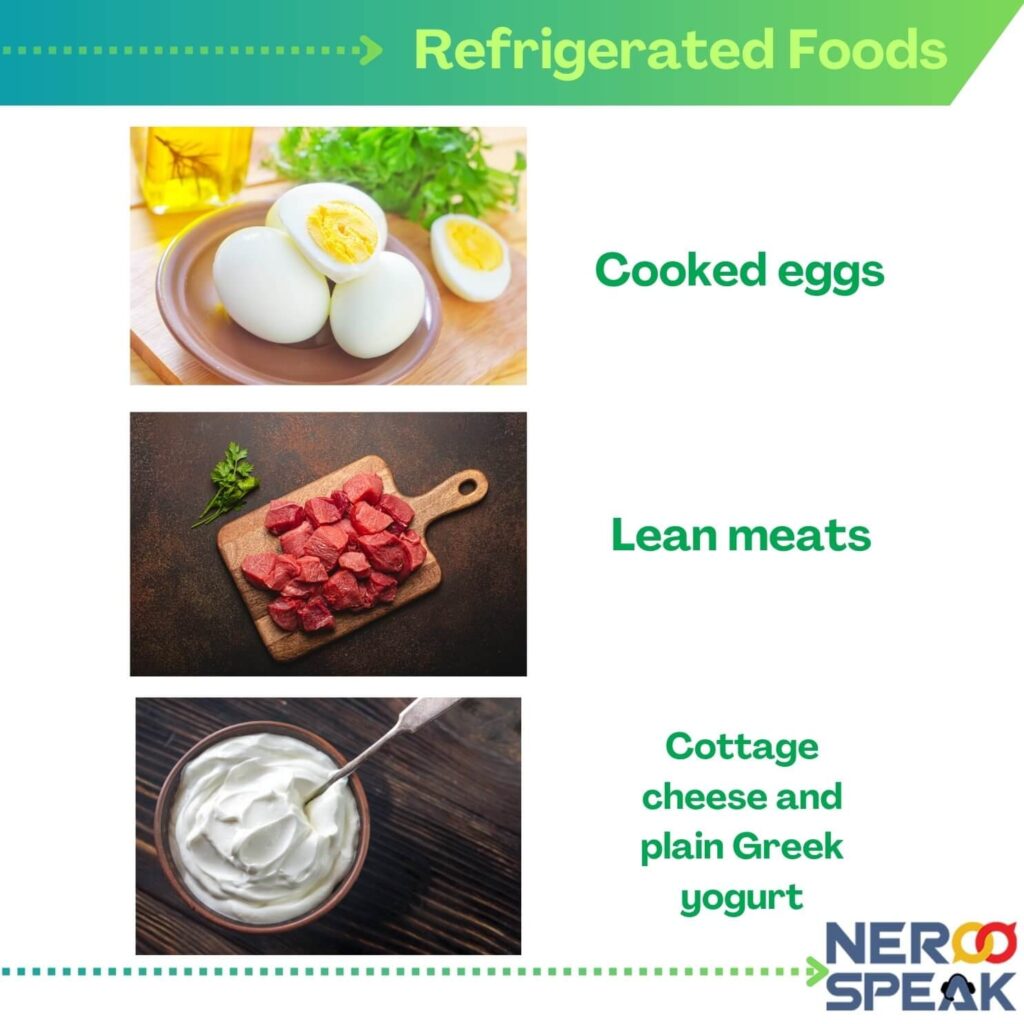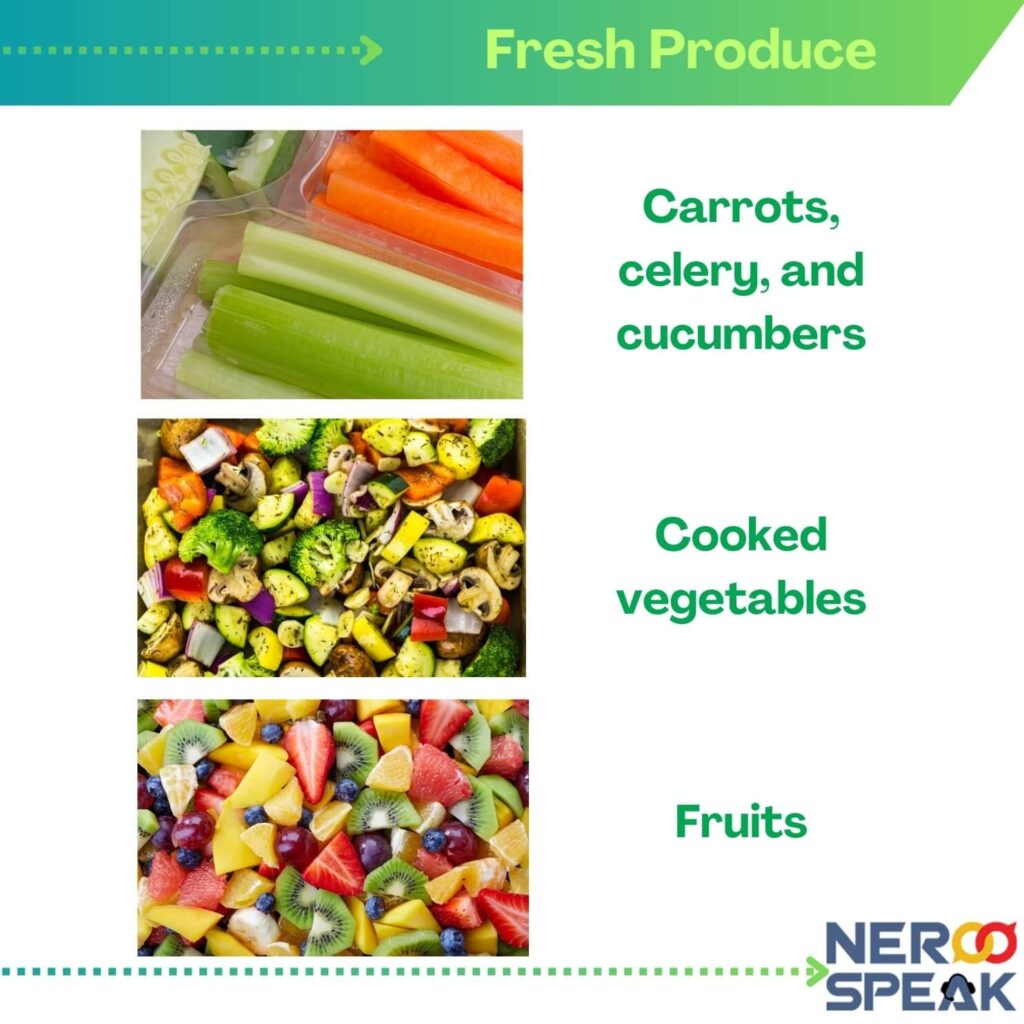What can I feed my dog instead of dog food?!!
While many people choose commercial dog food, other choices can create a mixed diet. Ensuring that any other food is safe, healthy, and good for a dog’s well-being is important.

Dog Food Alternatives:
If you run out of dog food, what can you feed dogs instead of dog food? There are several safe and healthy choices you can give your dog. You can use common items from your pantry and fridge. Here are some options:
Pantry Items
- Canned chicken or tuna: Make sure it’s in water, not oil.
- Canned vegetables: Rinse them to take away extra salt.
- Peanut butter: Check that it does not have xylitol.
- Plain oats: Steel-cut or old-fashioned oats are the best.
- Whole grains: Brown rice, barley, and quinoa are great options.
- Whole-wheat or gluten-free pasta: Cook it plain without sauces.

Refrigerated Foods
- Cooked eggs are a good source of protein, but they need to be cooked.
- Lean meats include skinless chicken, turkey, or beef, cooked without any seasoning.
- Cottage cheese and plain Greek yogurt are rich in calcium and good bacteria.

Fresh Produce
- Carrots, celery, and cucumbers: You can eat them raw.
- Cooked vegetables: Broccoli, green beans, potatoes, and sweet potatoes are good when cooked.
- Fruits: You can have apples (without seeds), bananas, blueberries, and strawberries.

Important Tips
- Balance: Try to have a mix of proteins, carbs, and fats. For instance, pair lean meat with a little bit of cooked grains and some vegetables.
- Avoid harmful foods: Don’t give your dog chocolate, grapes, raisins, onions, garlic, or any food high in fat or salt.
- Monitor: Keep an eye out for any signs of stomach problems, like vomiting or diarrhea. This is important, especially when adding new foods.
These substitutes can be used for now until you can get more dog food. Always talk to your vet if you have worries about changing their diet or if your dog has certain health problems.
We hope you had a good read!!
Important FAQs:
1- What is the best substitute for dog food?
- Cooked chicken or turkey (without bones or seasoning)
- Boiled rice or pasta (plain, without any oils or spices)
- Sweet potatoes or pumpkin (good for digestion)
- Eggs (cooked without seasoning)
- Carrots, peas, or green beans (steamed or raw)
These are some healthy foods for dogs that you can use as a short-term choice. But, it’s important to ensure the meal is balanced. This is not a lasting solution. You can also find recipes online for making dog food at home.
2- What can dogs eat if I run out of dog food?
If you need help, you can try some of the options above. But, you should stay away from foods such as chocolate, onions, garlic, grapes, raisins, and some artificial sweeteners like xylitol because they are harmful to dogs. A blend of protein, like chicken, beef, or eggs, and carbohydrates, like rice or potatoes, is a good option.
3- What can you do if you don’t have money for dog food?
Contact local pet food banks: Many communities have places that help with pet food during tough times.
Get help: Sometimes, local shelters, vet clinics, or community groups can give food donations.
Search for deals or discounts: Some pet food stores offer discounts or loyalty programs. You can also find cheaper options online.
Make dog food at home: You can cook simple and balanced meals for your dog at home, but be careful about keeping the nutrition right.
4- Can I give my dog regular food instead of dog food?
It depends. Some human foods are safe and healthy for dogs. For example, lean meat, rice, and vegetables are good. However, many other foods are not good for them. Food that people eat often doesn’t have the needed nutrients that dogs require. So, it’s not a good long-term choice. Dog food is made to give all the nutrients they need. It’s better to use human food as a short-term substitute, not as a daily diet. Always talk to your vet if you want to do this more often.
Expand your knowledge today and dive into our articles now!
- Easy Busy Day Soup Recipes
- 50 Soft Foods to Eat After Tooth Extraction
- Snack Foods Being Banned
- What to Do with Old Coffee Beans?

Haya Yaseen is a skilled WordPress editor and a dedicated business management specialist. With a keen eye for detail and a passion for crafting engaging digital content, Haya excels in creating and managing professional WordPress websites. She combines her technical expertise with her strong background in business management to deliver innovative and client-focused solutions.
Haya is an alumna of The University of California, Los Angeles (UCLA), where she earned her degree in Business Administration, further refining her skills in strategic thinking and organizational management. Her academic background, paired with her professional experience, makes her a versatile and results-driven individual in the fields of web development and business management.